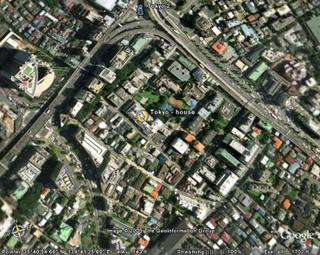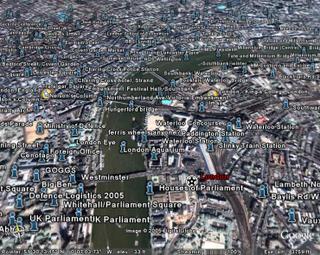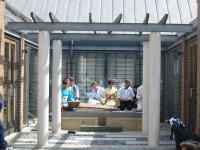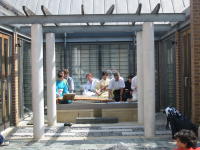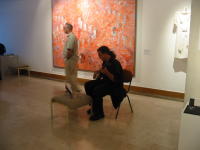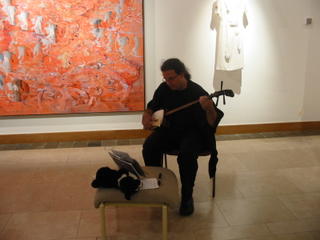Employee Representation in Corporate Boards
Most econometric studies of board-level employee representation find that it has no clear adverse effects on company performance, although studies are conflicting on the particular issue of whether employee codetermination adversely impacts share prices. Meanwhile, a wide body of evidence does suggest that employee involvement in the board has a positive impact on trust, organizational culture and hence the effectiveness of implementing top-level corporate decisions.
I have just completed a comparative study as to why countries adopt codetermination. The comparative analysis highlighted two sets of factors or 'pathways' to codetermination.
Both pathways to codetermination are characterized by coordinated multi-employer collective bargaining, consensual political systems with strong proportion representation, and concentrated corporate ownership. The Scandinavian varient was characterized by stronger left political parties, and higher union density.
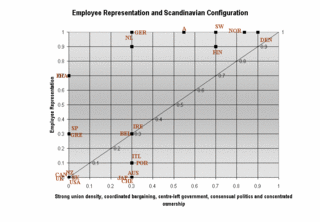 An interesting result was that Scandinavian countries have both codetermination and relatively rules on investor protection and corporate disclosure.
An interesting result was that Scandinavian countries have both codetermination and relatively rules on investor protection and corporate disclosure.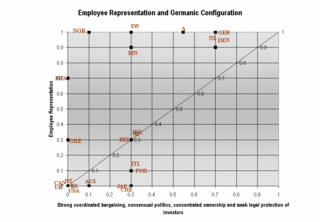 Unions and Social Democratic parties are less strong , but these countries also have weak investor protection and corporate disclosure.
Unions and Social Democratic parties are less strong , but these countries also have weak investor protection and corporate disclosure.These differences in the political strength of left and degree of investor rights suggest some interesting conjectures about the politics of corporate governance. In Scandinavia, the strength of unions and left parties allowed a political compromise with concentrated owners that involved not only codetermination, but usually also greater transparency and investor protection. In Germany, the comparative weakness of the unions and left led to codetermination rights, but allowed concentrated owners to shield themselves from both outside investors and employees representatives through less corporate transparency and investor rights.
The Scandinavian case has strong implications for the future of stakeholder models of corporate governance that seek to institutionalise strong rights for both shareholders and employees. In particular, these cases contradict the expected negative relationship between employee rights and legal rights for shareholders. This may suggest that employee representation may lead countries to adopt stronger legal protection for shareholders, either as a way for shareholders to counterbalance employee influence or more likely as a response to demands for greater transparency by employees themselves.

